Explaining publishing to non-author friends is like a sitcom
Publishing often makes me feel like I'm losing my mind. My friends—and the looks on their faces when I tell them about it—remind me I'm not.
Whenever I meet up with friends who aren’t writers, especially if we haven’t caught up in a while, explaining publishing and what it’s like to be a traditionally published author is kind of hilarious. Inevitably, once we’re past the “AMAZING, you must be so PROUD!” and I’m done blushing so hard you could fry an egg on my face, we dive into the nitty gritty of what it’s really like behind the scenes. That’s when my friends start to look an awful lot like a certain character from… well, Friends.
Over the years I’ve written down some of these interactions thinking someday they’d make for a fun newsletter. That day is here, my friends.
*Note: I know this isn’t a universal opinion, but I don’t mind friends asking these questions—e.g. the ones about my sales—so please don’t get offended on my behalf!
Re: book advance splits
Friend: “Your publisher pays you upfront, right? So you can support yourself while you write the book?”
Me: “Well, it’s a tough market, and I’m trying to switch age categories, so I’m writing a whole book on spec—meaning, it’s not under contract yet. It’s risky, since it might not sell, but it improves its chances. But when I’ve sold books on proposal before, my advances were split in fourths, so I got 25% on signing, 25% when my editor approved the first draft, 25% when it went to copyedits, and 25% when the book came out.”
Friend: “I thought an ‘advance’ was supposed to be an advance.”
Me: “Ha, right? Some authors have even worse contract terms and don’t get the last 25% until a full year after the book comes out.”
Friend:
Re: normal advance amounts
Friend: “Each book sells for a good amount though, right? So that first 25% is still a decent chunk—”
Me:
Friend: “Oh…”
Me: “No, it’s okay—ever since she-who-shall-not-be-named blew up, it’s such a common misconception that authors make bank. But unless you’re already a bestseller or a super lucky debut, it’s rare to sell a book for six figures. Even most ‘six-figure deals’ are for multiple books, so it could really be $50k per book. Or less, if it’s a trilogy. My first one-book deal got $25,000 pre-tax, and 15% went to my agent. Split into multiple payments. And that was for years worth of work.”
Re: waiting on payments
Friend: “Well, at least you know when those payments will come in, right? So you can plan for those gaps in your income?”
Me: “Actually, when your agent takes your new project out on submission to editors at publishing houses, those editors can take anywhere from a week to a year (or more!) to get back to your agent. Even after you sign a contract, your editor could be weeks or months late on edits, or your publication date could get pushed for reasons that have nothing to do with you. So those later payments get pushed out, too. I have one friend whose editor was six months late on edits, and another whose publication date got bumped a whole year.”
Friend:
Me: “Actually… this one author got a work-for-hire deal on proposal and wrote the whole book before the contract was finalized, and the imprint backed out because they wanted to rebrand. And since they owned the IP, she couldn’t take it to any other publisher. So she did months worth of work for no income.”
Friend:
Re: deadlines writing on contract
Friend: "How long does your publisher give you to write the book?"
Me: "Depends. So far I’ve gotten 4-5 months for a first draft, but I have friends who've had to write a whole book in 2 months."
Friend:
Friend: “Wait… the editor could be months late on edits… but some authors get only two months to write an entire novel… ???”
Me: *nods solemnly*
Friend:
Re: bestseller lists
Friend: “So how does the New York Times bestseller list work? The books we see each week sold the most copies the week before, right?”
Me: “Actually those lists aren’t just based on sales—there’s some editorial curation going on. Sometimes a book with hundreds more sales than the book in the #10 slot won’t hit the list at all. One of my friends had enough to be #6 one week and wasn't on it. So you can hustle your butt off and actually get the sales to hit, and still just… not.”
Friend:
Re: sales data
Friend: “Your Reels for this book are so good! You must’ve sold so many copies!”
Me: “Actually, I don’t know. If I were self-published I’d get to see daily sales data in my retailer dashboards, but since I’m with a publisher, I only get to see accurate sales data twice a year.”
Friend:
Re: why publish traditionally
Friend: “So you’re publishing with a publisher... why? To make sure your book gets stocked in stores? And so they do the marketing for you?”
Me: “Actually, B&N isn’t stocking lots of books these days, and even if they stock yours, their order will probably be tiny unless you get a special edition—maybe a copy or two in half of their stores, if that. Most books don’t get much marketing or publicity support, either, unless they’re a lead title.”
Friend:
Re: lead titles
Friend: “So lead titles are picked based on… what? Trends?”
Me: “Not always. Sometimes it depends on how big an advance the author got. Ideally marketability would factor into that, but there’s a lot of luck involved—timing of other books coming out, your agent’s track record and sharkiness, whether the P&L statement included accurate comps, the editor’s or acquisition board’s mood, whether multiple publishers offer and it goes to auction. Actually, the head of the biggest publisher admitted during a DOJ trial a few years ago that it’s all random. Which is pretty funny since ‘random’ is in their name—”
Friend:
Re: the impact of a book going viral
Friend: “But those Reels got, like, millions of views. Didn’t that help? Wouldn’t B&N want stacks of your book on their tables? Wouldn’t your publisher want to promote it?“
Me: “Yeah that’d be pretty sweet.”
Friend:
Re: that glamorous author life
Friend: “But at least you get to go on book tours and hang out with other authors! That must be so cool!”
Me: “Local authors, yes, absolutely—I meet up with them all the time and I love it! But my personal policy is to only travel for book stuff when my publisher foots the bill, so I’ve never been on tour, and I’ve only been to one book festival so far.”
Friend: “But I see other authors announcing tours all the time!”
Me: “And most of them pay for it themselves.”
Friend:
These are all based on extremely real conversation I’ve had with friends and former colleagues. It's always jarring to see their reactions, but also extremely validating. Publishing is a strange industry, and the only guarantee is that nothing is guaranteed. 🫶
Want to pick my brain about publishing? I now offer 1:1 Q&A calls! Details here.
What about YOU? Have you had any conversations like this? Tell me about your friends’ Joey Tribbiani moments in the comments! And let me know if you want a part two, since Substack cut me off with their email length limit.


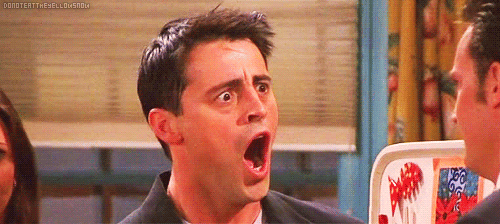

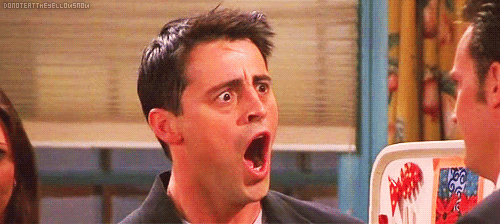


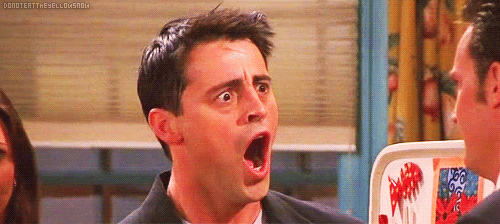
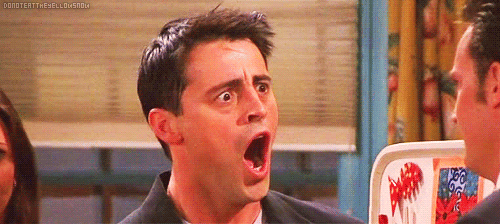


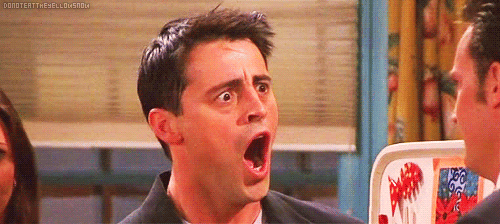
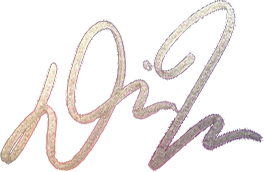
This has to be the most real post on trad publishing I've ever read. *laugh-crying* Hybrid is sounding pretty good right about now lol.
As a former commissioning editor, I LOVE that you wrote all this out. So many in the industry just assume authors will know how it all works. I found the opposite. Expectations rarely meet reality.
One other note that I find most authors don’t realise… the advance is an advance… you won’t get further pay out until you sell beyond that advance (aka pay it back) and given how low a percentage authors get from the actual sale price, that can take time.